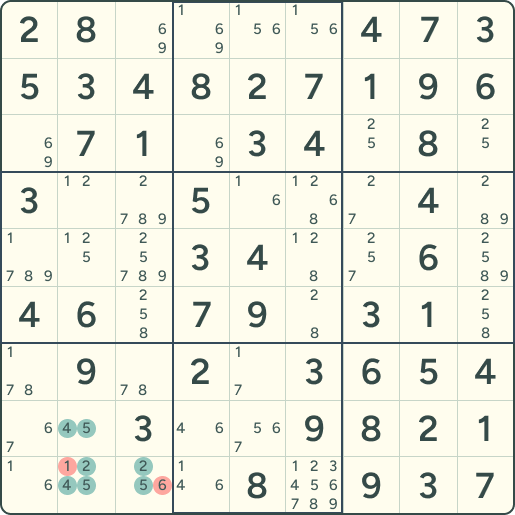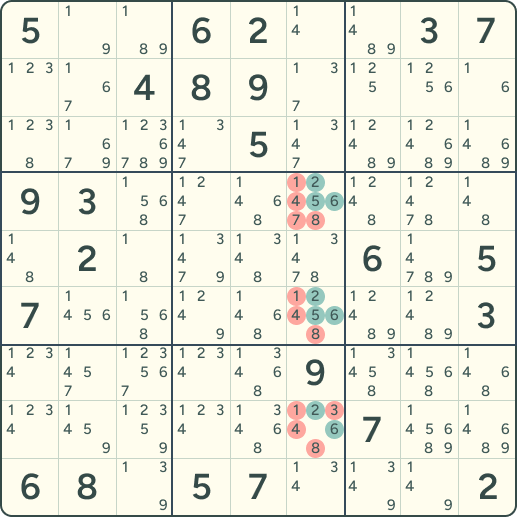The Hidden Triples Technique in Sudoku
Core Principle
Hidden Triples operate as Hidden Pairs do, but with three cells and three candidates within those cells in a house (row, column, or block). These candidates need to fully occupy the space labeled “triple”, allowing other numbers in the designated cells to be skipped.Example 1 (Block 7)
In B7, candidates 2, 4, and 5 are exclusively located in R8C2, R9C2, and R9C3. While 1 and 6 will still occupy these cells, due to the triples exclusivity:- 1 can be eliminated from R9C2
- 6 can be eliminated from R9C3
- The puzzle becomes easier with these eliminations.

Example 2 (Column 6)
In C6, candidates 2, 5, and 6 are restricted to cells R4C6, R6C6, and R8C6 (abbreviated as R468C6). Despite the puzzle having no initial singles, identifying this triple breaks it open, requiring only basic moves afterward.
Why Hidden Triples Matter
- They help in decluttering cells overcrowded with candidates.
- Tend to show up during early or mid-game stages without previous eliminations being made.



